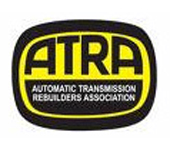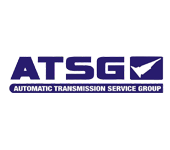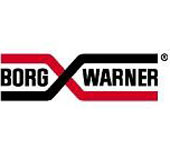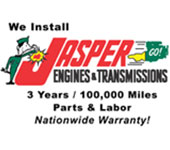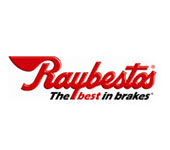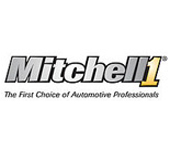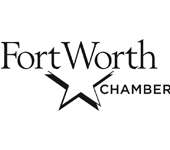Time for Differential Service at Westmoreland Transmissions?
Posted May 31, 2020 12:47 PM
Hello FORT WORTH - let's talk differentials. If you have a rear-wheel drive vehicle, your differential is on the back axle. With front-wheel drive cars, the differential is up front. All-wheel drive and 4-wheel drive vehicles have three differentials - front, rear and in the middle. So you see, you've got a differential (or two or three) and it needs service now and then.
What does your vehicle differential do? Well, it compensates for the differences in speed between your outer and inner wheels in a turn. Using the dimensions of a typical car, let's compare the distance the wheels travel from the start of a turn through to the completion of the turn.
The inside wheel travels about 12.6 feet/3.8 meters. How much farther does the outside wheel travel? About 18.8 feet/5.7 meters – over 6 feet/1.9 meters more. This means the outer tire has to rotate 9 times in the same amount of time that the inner tire has to rotate only 6 times - so the outer tire has to spin faster in order to keep up. The differential makes this possible.
The gears in the differential are cooled and lubricated by differential fluid. It's this fluid that needs to be serviced. Small bits of the gears break off and are suspended in the differential fluid. The dirtier the fluid, the faster the gears wear.
So your Westmoreland Transmissions technician drains the old fluid out and replaces it with fresh fluid. Some differentials also need a special additive that is put in at this time.
So when should you have your vehicle differential serviced? Intervals vary from vehicle to vehicle – and may be as short as 15,000 miles/24,000 km – so check your vehicle owner's manual or ask us at Westmoreland Transmissions. If you frequently drive with heavy loads, tow a trailer or drive in hot TX conditions, you may need to change differential fluid more often. Servicing your differential on schedule at Westmoreland Transmissions can save a pricey replacement down the road.
Give us a call.
Westmoreland Transmissions
2001 E LOOP 820 S STE 19A
FORT WORTH, TX 76112
817.466.7295
http://www.westmorelandtransmissions.com
Too Hot to Handle (Vehicle Overheating)
Posted May 24, 2020 11:20 AMIn the hot weather, seeing steam coming from the engine compartment is something we all dread. No one wants that to happen to them. But if you know the signs of overheating and how to deal with it, you may be able to reduce the risk of damage to your vehicle, maybe even prevent getting stranded on the road.
Besides the steam coming out of the engine compartment, here are a few signs of overheating. Your vehicle has a heat gauge that may have a needle that can go into a red zone or up to the "H" (for High) position. You may smell odors, perhaps a burning (could be hot oil) or a sweet smell (engine coolant leaking).
When you encounter any of those signs, you know you have to do something to keep the engine as cool as possible to avoid potentially catastrophic damage. Turn off the air conditioning and turn up the heat. While that last part may sound odd, it helps draw heat out of the engine.
If you can do it safely, pull off the road to a spot away from traffic. Turn off the engine so it can cool down for a few minutes. You may want to call for help at this point, then switch on the key to "accessory" position to see if the engine has cooled down to the normal range. You may have to have your car towed to a service facility or, if there's one nearby, you may be able to slowly drive to it. But keep your eye on the heat gauge and immediately stop if it starts to overheat again.
The best hedge against engine overheating is regular maintenance. When the cooling system and other engine components are working like they should, your chances of an overheated engine are drastically reduced. Your service facility will keep their eyes open for leaking hoses, cracked belts, rusted pipes and other things so they don't fail at the most inopportune time.
Westmoreland Transmissions
2001 E LOOP 820 S STE 19A
FORT WORTH, TX 76112
817.466.7295
http://www.westmorelandtransmissions.com
Keeping Your Engine Cool in FORT WORTH, TX
Posted May 17, 2020 3:41 AM
The cooling system keeps TX vehicle's engines from overheating while they are driving around FORT WORTH. Its job is to move heat away from the engine. Let's talk about the various components of the system and how they make this happen.
The radiator is the part most FORT WORTH drivers associate with the cooling system. Coolant flows through the radiator which has fine cooling fins that draw the heat out of the coolant and dissipate it into the air. To make sure there's enough airflow over the radiator, a fan pulls air over the cooling fins even when the vehicle is idling.
In some vehicles, the fan is powered by the serpentine belt. On others, an electric motor runs the fan. Electric fans turn on and off as needed. You may have heard the fan kick on shortly after you turn your vehicle off. The sensor has determined that the engine needs a little help cooling down to a safe temperature.
A hose connects the radiator to the water pump. The water pump pushes the water into the vehicle engine block. Now the engine block and cylinder heads have passages for the coolant to pass through without getting into the oil or the combustion chamber. In the automotive community, these passages are referred to as the "water jacket."
While the coolant is passing through the water jacket, it absorbs heat from the vehicle engine on its way to the radiator for cooling. Between the engine and the radiator is a gatekeeper called the thermostat. The thermostat's job is to regulate the temperature of the engine just like your home thermostat regulates the temperature in your house. It gets your engine up to the correct operating temperature and then keeps it from overheating.
When you first start the engine, it's very cold and needs to warm up. So the thermostat blocks the flow of coolant to the radiator. As the engine warms up, the thermostat starts to let coolant flow through the system.
The final component the team at Westmoreland Transmissions wants to point out is the overflow reservoir. This bottle is designed to hold some of the coolant. It'll have a mark that indicates whether or not you have enough coolant. This is where you should add coolant if you just need to top it off.
Caution: never open the reservoir or the radiator cap when the car's hot. The cooling system is pressurized, and opening those caps while it's hot can cause hot coolant and steam to escape resulting in serious burns.
Cooling system failure is the most common mechanical failure in vehicles around FORT WORTH, TX. At Westmoreland Transmissions, we can do a periodic inspection of the components for leaks, loose connections and weakening hoses.
Your vehicle manufacturer has also specified a cooling system service interval. With a cooling system service at Westmoreland Transmissions in FORT WORTH, the old coolant is replaced with correct clean fluid that contains the additives required to prevent corrosion. The additives are depleted over time and you need fresh fluid for adequate protection. Your radiator pressure cap should be replaced at this service as well.
Westmoreland Transmissions
2001 E LOOP 820 S STE 19A
FORT WORTH, TX 76112
817.466.7295
http://www.westmorelandtransmissions.com
Fall and Spring Checkup in FORT WORTH
Posted May 10, 2020 11:08 AM
When I was a kid, my dad always made sure he took the cars in for Spring and Fall checkups. I was telling a friend that it's about time to get into Westmoreland Transmissions for a checkup and he said that he read on the internet that modern cars don't need seasonal service.
My friend is (technically) right about some things, but from a practical standpoint, a seasonal check up still makes sense.
Back when my dad was teaching me about how to take care of the family vehicle, most of them used a different weight of oil in the winter and in the summer. But most of today's modern engines run the same oil year round. High-tech engines and high-tech motor oils are better able to handle the seasonal changes.
Your owner's manual or FORT WORTH service advisor at Westmoreland Transmissions can tell you the right oil to use.
Of course, you're concerned about the coolant or antifreeze. You don't want to overheat in the TX summer or freeze up in the winter. Your engine cooling system protects against both of these things. And modern coolant — 'antifreeze' as it's sometimes called — is up to doing both very well. It's designed to last for longer distances than most people drive in a year or two.
So how does a Spring and Fall check-up fit in? Let's start with Spring. Summer is coming. That means heat, more driving and road trips. It just makes sense to check your fluid levels and do a visual inspection to see that everything is up to snuff.
You may not be scheduled to drain and replace the coolant for some time, but you need to make sure you have enough coolant and that you don't have any leaks or hoses that are about to fail.
That's pretty practical: a check-up to see if there are any problems or emerging conditions that could later become a problem, like a cracked belt.
And the same principle applies for getting ready for winter. Cold weather means lots of failed batteries. It takes more power to crank up a cold engine, and cold also decreases the available cranking power the battery has available.
So a battery test in the Fall could tell you if you've got a battery that is running on its last legs. And of course, if you live where winter temperatures get below 45 degrees F (7 degrees C) or you have ice and snow, you'll want to consider changing to winter tires.
So Spring and Fall auto checkups at Westmoreland Transmissions are practical reminders to get ready for the demands of the hot and cold seasons to come.
And odds are that you have one or more routine services that are due anyway. Like a transmission service, brake or power steering fluid, differential service — stuff like that. Are your wiper blades still good? Are your headlamps starting to dim?
So Spring and Fall, change your clocks, replace the batteries in your smoke detectors and get a check-up for your cars.
See, dad was right again.
Come and see us at Westmoreland Transmissions for your Spring and Fall automotive checkup.
Westmoreland Transmissions
2001 E LOOP 820 S STE 19A
FORT WORTH, TX 76112
817.466.7295
http://www.westmorelandtransmissions.com
Power Steering Service at Westmoreland Transmissions in FORT WORTH
Posted May 3, 2020 7:12 AM
Many FORT WORTH drivers have been hearing about technological advances in power steering, specifically electric power steering. Some very high-end cars have been featuring electric power steering. Power steering fluid has the necessary hydraulic properties and the ability to lubricate the internal parts. The power steering fluid also protects vehicle components from rust and corrosion.
FORT WORTH car owners should be aware that vehicle manufacturers recommend that the fluid be replaced on schedule. At Westmoreland Transmissions, the old fluid is drained and the system cleaned thoroughly. Fresh fluid is then installed.
Unfortunately, many FORT WORTH drivers don't realize how important it is to service their power steering, and some may not even know that it's necessary in the first place. A neglected power steering system can develop leaks that will shorten the life of the pump.
FORT WORTH drivers should be aware of warnings that indicate possible power steering problems: the need to constantly add power steering fluid, a loud whining from the pump, erratic power assist or high steering effort. If you're experiencing any of these problems, have your power steering checked out at Westmoreland Transmissions in FORT WORTH.
In addition to the pump and hydraulic system, there are mechanical parts in the steering system. The rods, arms, joints and knuckles that actually turn the wheels can become worn or damaged. A standard alignment service at Westmoreland Transmissions includes an inspection of steering components.
See if you notice any of these: play in the steering wheel, the steering wheel is off center, or there's a noise coming from your front wheels, especially when turning. If so, have your friendly and knowledgeable Westmoreland Transmissions service advisor do an inspection so the problem can be corrected. Waiting too long could cause uneven tire wear and may even lead to steering failure.
Give us a call.
Westmoreland Transmissions
2001 E LOOP 820 S STE 19A
FORT WORTH, TX 76112
817.466.7295
http://www.westmorelandtransmissions.com






